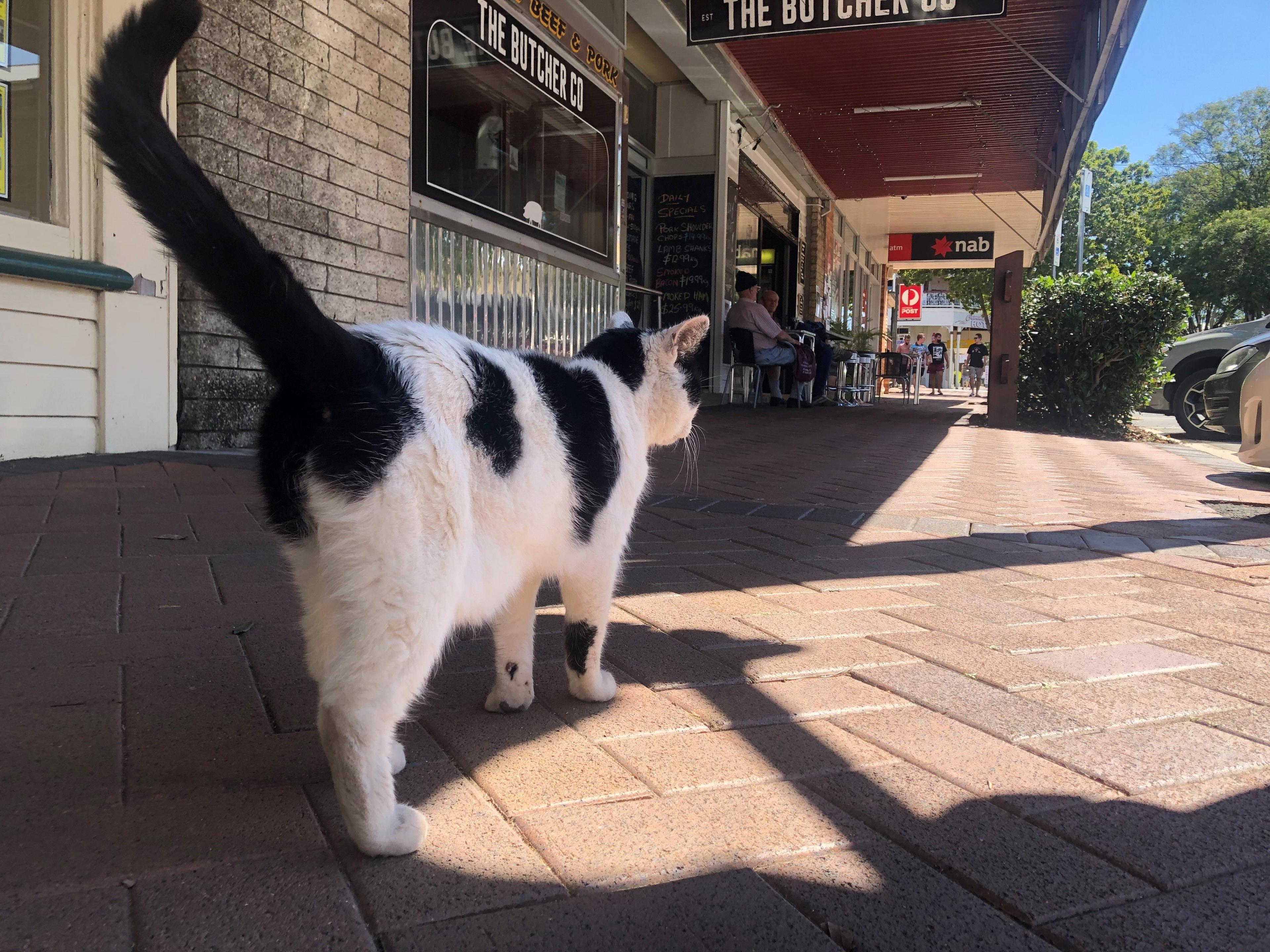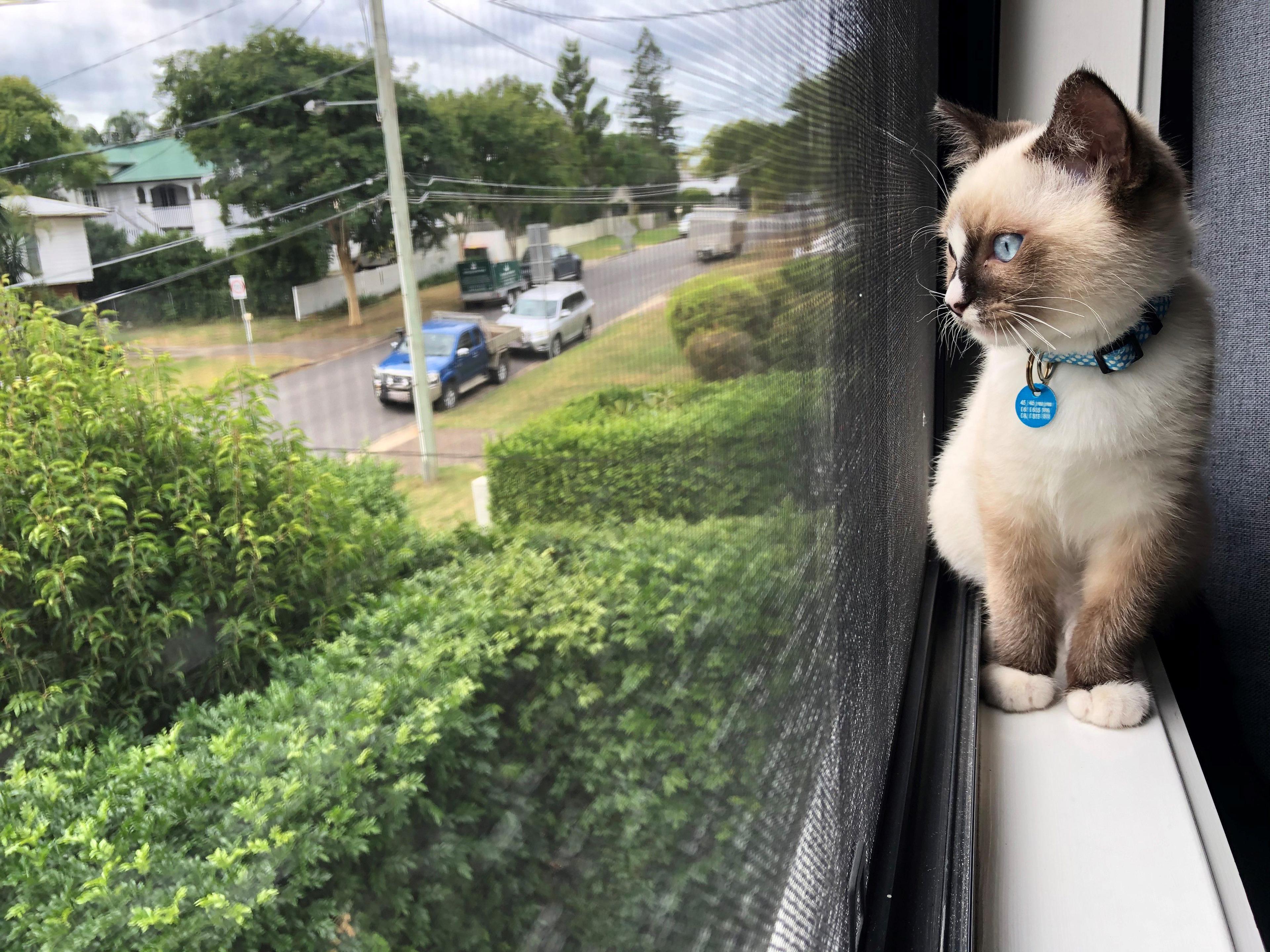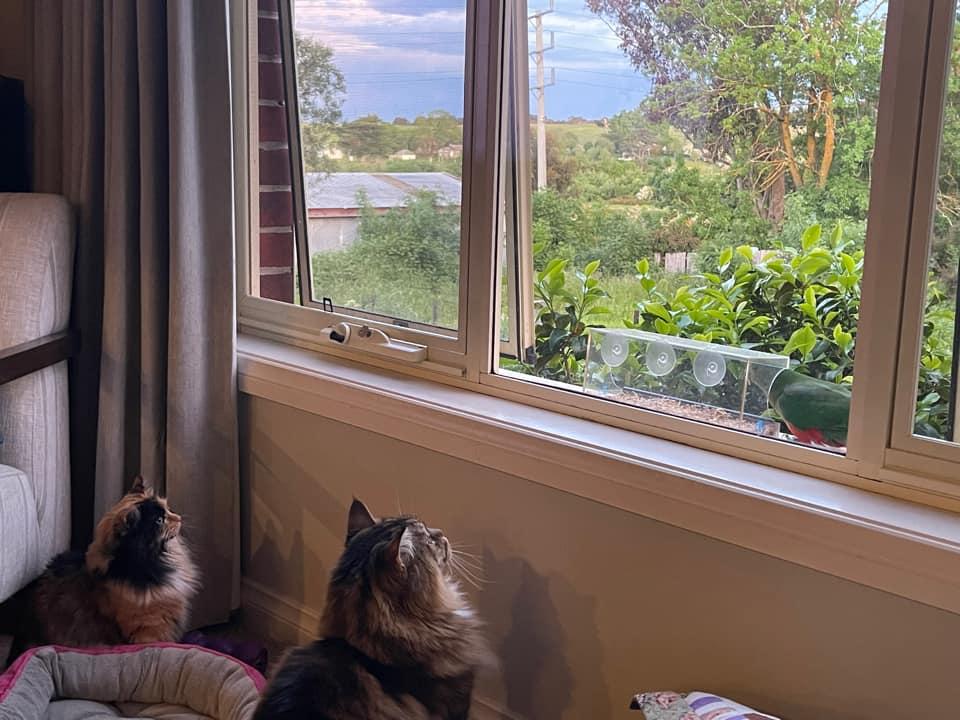Two-thirds of Australians think pet owners should be required to keep cats contained

Cat prowling a Queensland country town. Image: Jaana Dielenberg
News story
23 May 2024
There are now 5.3 million pet cats in Australia. New research has found that two in three Australians would support policies that require cat owners to keep their cat contained to their property.
The national survey undertaken for the Biodiversity Council by Monash University in late 2023 asked over 3,400 people whether they supported policies to “require cat owners to keep their cat contained to their property”.
The results, which have recently been published, found 66% of the community are in support of requiring pet owners to keep their cats contained, 8% are opposed and 26% choose ‘neither support nor oppose’.
Analysis by the Biodiversity Council shows that if all pet cats were kept securely contained by their owners it would save hundreds of human lives, millions of native animals and billions of dollars each year.

Biodiversity Council member Professor Sarah Legge from the Australian National University said:
“These new survey results show that there’s now strong recognition amongst the Australian community of the value of responsible pet ownership laws that require cats to be contained at home 24/7.
“A cat kept safely at home will live a longer life, pick up less diseases and is less likely to get injured in car accidents, dog attacks or cat fights, and they have far fewer vet bills.
“Reducing the number of pet cats roaming our streets and gardens would also reduce rates of diseases that depend on and are spread by cats and can infect humans, such as toxoplasmosis and cat roundworm.
“Each year, these cat-borne diseases cause an estimated 8,500 hospitalisations and 550 deaths and cost the economy $6 billion based on costs of medical care, lost income and related expenses.
“Keeping pet cats contained will have large benefits for wildlife. On average, each pet cat kept indoors or in a secure run saves the lives of 110 native animals per year.
“It also stops them impacting wildlife through things like stalking, because animals can’t do important jobs like feeding, sleeping and caring for their young when they are fleeing a cat.
“Nationally, roaming pet cats kill around 323 million native mammals, birds and reptiles each year.”

Invasive Species Council Advocacy Director Jack Gough said:
“Introducing 24/7 cat containment rules is a simple step that would have profound benefits for our native wildlife and be supported by the majority of Australians.
“Owning a pet cat should come with clear responsibilities to ensure your pet is not roaming around killing our native birds, mammals, reptiles and frogs.
“Around the country in recent years numerous local governments have brought in cat containment rules that are supported by their community.
“However in NSW and WA we still have the ridiculous situation where state laws prevent local councils implementing cat curfews to protect wildlife.
“This new polling data should give the NSW and WA governments confidence that updating their laws to bring them into line with the rest of Australia will receive strong backing from the community.
“In addition to changes to the law for cat containment, we also need governments to boost funding for responsible pet ownership initiatives like subsidised desexing and community education,” said Mr Gough.
The Australian Capital Territory is already implementing 24/7 cat containment. Over 50% (42) of Victoria’s 79 councils have introduced requirements to keep cats contained all or part of the time, while another 16 are considering introducing containment measures.
The survey was benchmarked against Australian Bureau of Statistics data to ensure the results fairly represent the views of the Australian community.
The Biodiversity Council was founded by 11 Australian Universities to communicate accurate information on biodiversity issues to the community and to promote evidence-based solutions.
An analysis by the Biodiversity Council, Invasive Species Council and Birdlife Australia on the impact of roaming pet cats nationwide is available here.
Biodiversity Council spokesperson Jaana Dielenberg spoke to Kim Napier on ABC Northern Tasmania about the results of the national survey into community attitudes to keeping cats contained, cat impacts on wildlife, cat-spread diseases and also improving the welfare of pet cats. This interview was broadcast by ABC Radio on Wed 22 May 2024














